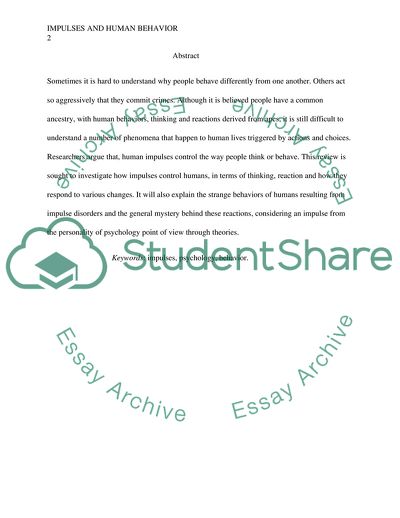Cite this document
(The Influence of Impulses on Human Behavior Coursework Example | Topics and Well Written Essays - 1500 words, n.d.)
The Influence of Impulses on Human Behavior Coursework Example | Topics and Well Written Essays - 1500 words. https://studentshare.org/psychology/1805139-human-impulses
The Influence of Impulses on Human Behavior Coursework Example | Topics and Well Written Essays - 1500 words. https://studentshare.org/psychology/1805139-human-impulses
(The Influence of Impulses on Human Behavior Coursework Example | Topics and Well Written Essays - 1500 Words)
The Influence of Impulses on Human Behavior Coursework Example | Topics and Well Written Essays - 1500 Words. https://studentshare.org/psychology/1805139-human-impulses.
The Influence of Impulses on Human Behavior Coursework Example | Topics and Well Written Essays - 1500 Words. https://studentshare.org/psychology/1805139-human-impulses.
“The Influence of Impulses on Human Behavior Coursework Example | Topics and Well Written Essays - 1500 Words”. https://studentshare.org/psychology/1805139-human-impulses.


